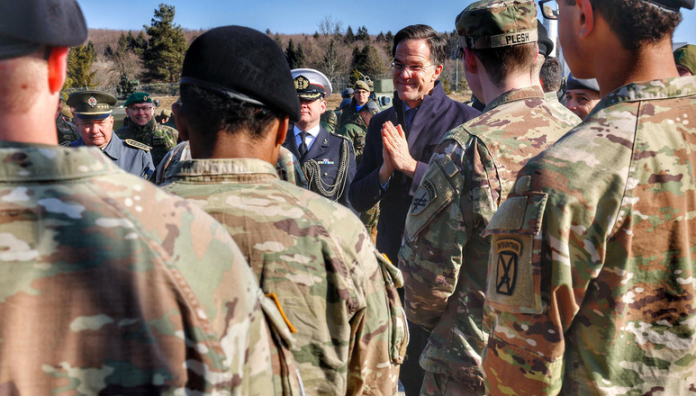NATO Secretary General Mark Rutte visited Slovakia on Thursday, holding talks with President Peter Pellegrini and Defence Minister Robert Kaliňák.
The discussions focused on Slovakia’s role in NATO and the European Union, as well as the need to reassess Europe’s defence strategy in light of evolving security challenges.
Rutte and Pellegrini reaffirmed Slovakia’s steadfast commitment to NATO and the EU. They agreed that Europe’s current defence strategy, designed for peacetime, was no longer sufficient and required urgent reassessment.
Both leaders emphasised the need for higher defence spending across the EU. Pellegrini acknowledged the validity of the issue but noted that it required further discussion. Rutte, however, stressed the urgency, stating, “The current two percent will not be enough.”
While Rutte’s remarks highlighted the need to address emerging threats, Pellegrini avoided directly referencing Russia. Instead, he pointed out that European armed forces were built for peacetime and are unprepared for current threats, regardless of their origin.
The leaders also agreed that any future peace agreement for Ukraine must be lasting and include robust security guarantees. Pellegrini stressed the EU’s key role in providing the guarantees and called for the bloc to approach negotiations with confidence and specific proposals.
Context and implications
Rutte’s visit to Slovakia comes amid growing concerns about Europe’s readiness to address security challenges, particularly in the wake of the ongoing war in Ukraine. The discussions underscored the importance of increased defence investments and a unified approach to ensuring long-term stability in the region.
Slovakia’s position as a committed NATO and EU member highlights its role in shaping the continent’s defence strategy. However, Pellegrini’s cautious approach to directly naming Russia reflects the delicate balancing act many European nations face in addressing security threats while maintaining diplomatic relations.
